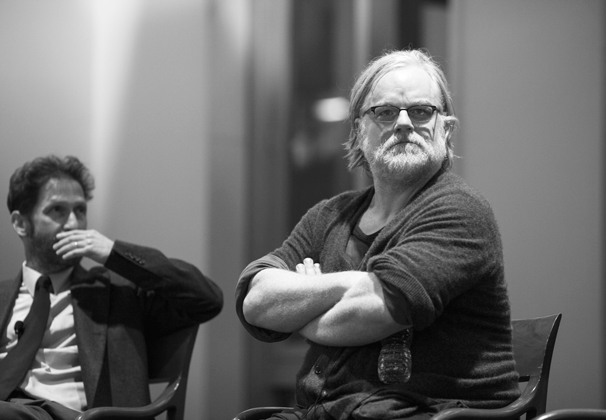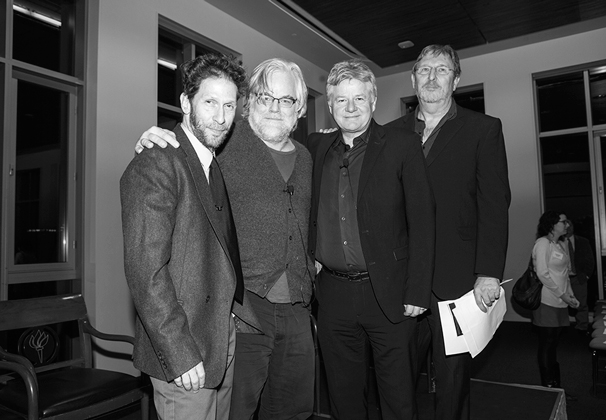Hoffman discusses relationship between acting and the mind
March 8, 2013

“The idea to me is to try to not worry about the emotion at all,” Oscar-winner and Tisch alumnus Philip Seymour Hoffman said when discussing his acting method. “Hopefully I will connect to the emotion that is there.”
An actor’s relationship to emotion was just one of the many topics discussed at a roundtable event held at the Global Center for Academic and Spiritual Life last night by the Emotional Brain Institute, a joint initiative between NYU and New York State. The roundtable, which focused on the scientific mindset of an actor, also featured actor Tim Blake Nelson, who recently costarred in “Lincoln,” and distinguished University College London professor of cognition Ray Dolan. The roundtable was moderated by chair of the graduate acting program at Tisch, Mark Wing-Davey.
Such a unique compilation of actors and academics led to an oftentimes conflicting but always enlightening conversation. As experienced professionals in the field of acting, Hoffman and Nelson reflected on their previous roles to provide insight into the discussion of psychology. For example, Hoffman recalled an internal struggle on the set of “Capote,” where he wasn’t sure of whether to stay in his own head or in the head of his character, Truman Capote.
“In ‘Capote,’ when I had to walk in to say goodbye to those guys who were about to be hung … not making it about me, that was my first impulse,” Hoffman said.
Hoffman eventually found, however, that the truest emotion resulted from his own thoughts and experience, not those of Capote.
“The emotion was surprising me,” Hoffman said. “I remember I actually had a very concrete thought that pertained to my personal life that I took into the room with me, which I don’t always do.”
Nelson later brought up a particularly memorable experience on the set of ABC’s “Modern Family.”
“One of the actors got very upset with me because I kept doing [my performance] differently all the time,” Nelson said. “And I thought, ‘That’s so strange. Isn’t that kind of what you want?’ Because what you want is the ineffable, the unpredictable, that scintillating moment to be captured on screen.
“I embrace the wrong line,” he added.
For Tisch senior and acting major Bailey Koch, the roundtable discussion provided the perfect opportunity to develop her craft further and learn about the distance between self and character.
“So many acting students study psychology,” Koch said. “It’s a really interesting marriage. I feel like [Hoffman and Nelson] are really interesting character actors. They don’t play themselves that often.”
Nelson was also willing to provide what he considers the most important advice for the many aspiring actors of NYU.
“Stick around,” Nelson said. “And do anything you can in either a related field or the same field to establish some measure of control over whether or not you work, so that you’re not waiting for others to give you opportunities.”
Jeremy Grossman is film editor. Email him at [email protected].
























































































































































